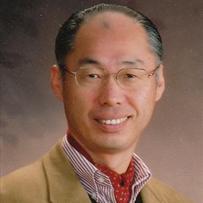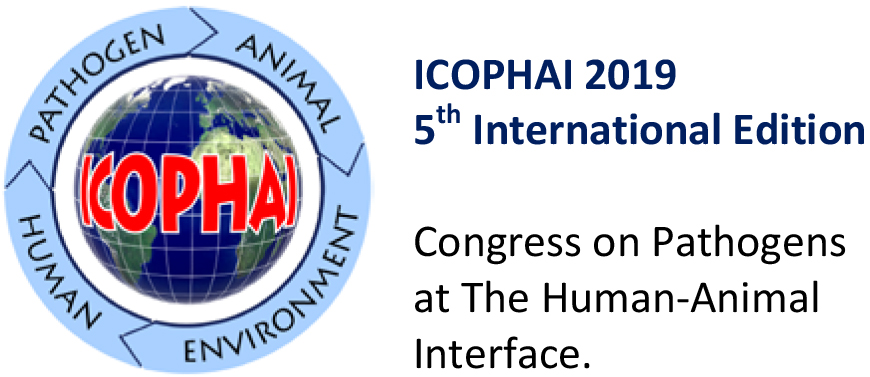
You are here
ICOPHAI 2017 program includes a keynote speaker presenting Global “One Health” with a focus on defined thematic area to be finalized by the Executive body and Advisory board. The current proposed theme for 2017 is: “ Environmental changes and Impact on global health priorities”
The thematic areas addressed on this congress include:
- KEYNOTE ADDRESS- "Environmental challenges and impact on global health."
- Special Session: Zika virus, Emerging and re-emerging Infectious Diseases
- Panel Discussion: One Health and impact of climate change;
PLENARY SESSIONS
- Antimicrobial Resistance and drug related issues;
- Biosecurity, Biodefense and Disaster Response;
- Pathogenesis, vaccine development and new Meta-Genomic Technologies;
- Food-borne and Water-borne Diseases;
- Parasitic and environmental Zoonoses;
- Innovative Capacity Building, e-Learning and Outreach approaches
Additional presentations at evening receptions and dinner will also be made by renowned international experts on relevant issues such as climate change, globalization, interaction with chronic diseases etc.
The ICOPHAI 2017 will include pre-congress workshops and courses on November 5-6. The specific areas will be based on requests initiated form local, regional and global partners. Areas may include topics such as Molecular epidemiology of zoonotic diseases (as done in 2013 and 2015)
Based on the three previous ICOPHAI versions, we expect upto 500 participants with more than 250 submissions for oral and poster presentations for ICOPHAI Qatar 2017.
OPENING SESSION SPEAKERS:
 |
Roberto Bertollini, MD, MPH Dr. Bertollini is currently the advisor for the Minister of Public Health, Government of Qatar. Previously, he served as the WHO Representative to the EU in Brussels and Chief Scientist of the WHO Regional Office for Europe, coordinator of the Evidence and Policy for Environment and Health unit of the WHO Department of Public Health and Environment in Geneva with the special task to develop the WHO global policy and response to the health impacts of global climate change. Dr Bertollini also served as the Director of the Division for Technical Support “Health Determinants” at the WHO Regional Office for Europe based in Copenhagen, DEN, Director of the WHO EURO Special Programme on Health and Environment, with offices in Copenhagen (DEN), Rome (ITA) and Bonn (GER). Earlier in his career, he was Director of the Rome Division of the WHO European Centre for Environment and Health. Dr Bertollini holds a degree in medicine and a postgraduate degree in pediatrics and holds a Master in Public Health (MPH) that he earned from the Johns Hopkins University in 1983. His main professional interests are the environmental influences on health, with special reference to the effects of emerging threats such as climate change, health effects of lifestyle and socioeconomic determinants including tobacco, alcohol and nutrition, the use of epidemiology for public health policy development and evaluation of public health programmes and practices. ICOPHAI Executive Body welcomes Dr Bertollini to its global community and thanks him for his agreement to serve as the ICOPHAI 2017 Keynote Speaker. Website: www.moph.gov.qa / www.nhsq.info |
SPECIAL SESSION
 |
TOPIC: Zika virus, Emerging and re-emerging Infectious Diseases This plenary session will focus on emerging infectious zoonotic, vector-borne, diseases at the human, animal (domestic and wild) and environment interface. The major emphasis will be Ond recent epidemics and pandemics concern with very high significance currently. Some examples of what will be covered include Zika virus, Middle-eastern Respiratory Syndrome (MERS); endemic hemorrhagic fever episodes (such as Crimean Congo) and others. This session will be led by a world-renowned plenary lead speaker followed by short slide presentations competitively selected from submitted abstracts Speaker: Larry Schlesinger, MD President and CEO Texas Biomedical Institute, formerly Samuel Saslaw Professor of Medicine; Chair, Department of Microbial Infection, and Immunity; Founding Director, Center for Microbial Interface Biology. Website: https://www.txbiomed.org/ Dr. Schlesinger who is currently transitioning into the private sector where he will begin his tenure as President/CEO of Texas Biomed on May 31, 2017 is one of the preeminent authorities in the field of infectious diseases. His main interests lie with tuberculosis and lung biology, more specifically the pathogenesis of tuberculosis and other airborne infectious agents that subvert lung immune mechanisms. His discoveries have led to greater insight into the mechanisms and components underpinning the interactions at the host-pathogen interface translating them into drug discovery platforms. He holds a BA in Biology from Cornell University, an MD from Rutgers Medical School, and fulfilled his residency requirements in Internal Medicine at the University of Michigan and clinical and research fellowships in Infectious Diseases at UCLA. His career highlights include stints as Fellowship Director for the Division of Infectious Diseases and Associate Chair of the Department of Medicine at the University of Iowa (1991), Director of the Division of Infectious Diseases, Department of Internal Medicine at The Ohio State University, and is the current chair of the department Microbial Infection and Immunity. Leveraging his expertise in clinical and translational research he has mentored the next generation of scientists (he has been/is a faculty member of 10 pre- and post-doctoral training programs), and has been committed to building strong interdisciplinary academic programs throughout his career.
|
 |
TOPIC: One Health and Impact of Climate Change Moderator: Prof. Wondwossen Gebreyes, DVM, PhD Diplomate ACVPM, Hazel C. Youngberg Distinguished Professor of molecular epidemiology and Executive Director of Global One Health initiative (GOHi) at The Ohio State University Email: Gebreyes.1@osu.edu Dr. Gebreyes completed his Doctor of Veterinary Medicine (DVM) at Addis Ababa University and his PhD at North Carolina State University. Dr. Gebreyes is the principal investigator of several research and training programs sponsored by the National Institute of Health (NIH) Fogarty International Center, Centers for Disease Control and Prevention (CDC) and others. He is engaged in food safety research activities mainly on antimicrobial resistance. Dr Gebreyes co-founded the International Congress on Pathogens at the Human Animal Interface (ICOPHAI) (http://icophai.org) and currently serves as the Chairperson. He is a recipient of several awards including the Universitas 21 international award; Michael P. Malone International Leadership Award by APLU; Battelle Endowment for Technology and Human Affairs (BETHA); Pfizer Award for Veterinary Research Excellence; Andrew Heiskell Award (honorable mention) by the Institute of International Education (IIE) and Emerging International Engagement award. |
|
|
Discussant: Dr. Asma Al Thani, PhD. Director of the Biomedical Research Center, Qatar University. Email: aaja@qu.edu.qa Dr Asma Al-Thani is a Professor of Virology at Qatar University’s Department of Biomedical Sciences, in the College of Health Sciences. Dr Al-Thani received her PhD degree in 2005 from the University of London in the United Kingdom. Dr Al-Thani’s academic appointment started in 2005, as an Assistant Professor of Virology at Qatar University. In 2011, she was promoted to the position of Associate Professor, and in 2016, was promoted to full Professor of Virology.Dr Al-Thani has also fulfilled roles as Adjunct Assistant Professor in the Department of Microbiology and Immunology at Weill Cornell Medical College in Qatar since 2011, as Vice Chairperson of the Qatar Biobank Board since 2010, a Qatar Foundation nominate for Chair of the National Genome Qatar Committee in December 2013, and Director of the Biomedical Research Center at Qatar University from Fall 2014. She was a recipient of the Sheikh Hummaid Bin Rashid Award for Culture and Sciences, for research on Bird Flu and Means of Prevention in December 2006, and was awarded a prize from the Al-Jasra Cultural Club-Qatar for a student research competition entry. Qatar University Outstanding Faculty Service Award in 2012, College of Arts and Sciences Research Award in 2012, the Arab Paediatric Medical Research Awards 2015, Best Student Award Poster in the field of Health and Biomedical Sciences at the Qatar Foundation Research Forum in 2012, and 2nd Winner of Qatar National Research Fund (QNRF)’s Sixth Annual UREP Competition in 2014. |
|
|
PLENARY SESSIONS
 |
SESSION 1: Antimicrobial Resistance and drug related issues This plenary session will focus on one the leading global public health issues, antimicrobial resistance and antimicrobial use in humans, animals and the environment. associated co-selective agents in the environment such as biocides, heavy metal micronutrients and other agents will also be discussed. Considering the theme of the 4th ICOPHAI is on environment, Foucault on antimicrobial issues associated with water, air and also solid matrices will receive special emphasis. The plenary session will include one lead invited speaker and several short slide presentations selected competitively based on abstract submissions. Lead Plenary Speaker: Satoro Suzuki, PhD Ehime University, Matsuyama, Japan Professor of MicrobiologyDivision of Aquatic Biosciences Center for Marine Environmental Studies (CMES)Laboratory of Marine Molecular Ecology (MME) E-mail: ssuzuki@ehime-u.ac.jp Dr. Satoro Suzuki is a professor microbiology Ehime University, Matsuyama Japan. His main focus is on Biochemical and molecular biological approaches to microbial ecology in marine environment. He obtained a Bachelor of Science from Hokkaido University, Hakodate, Japan, and Doctor of Philosophy degree from, Hokkaido University, Sapporo Japan. His current interests include 1) Occurrence, latency and transfer of antibiotic resistance genes in marine and human-related aquatic environments. Resistances to tetracycline, sulfonamide and quinolones 2) Role of microbes for formation and decomposition of protein in seawater. Proteases and refractory proteins are focused. 3) Ecology of birnavirus in aquatic environment. |
 |
SESSION 2: Biosecurity, Biodefense and Disaster Response This plenary session will focus on major issues of preventing spread of highly infectious agents that may be used as bio weapons across borders. The presentations would focus on agents of significance, way and means including various biosecurity measures to minimize and prevent such risks; and also how to effectively respond when and if such scenarios occur. The plenary session will include one lead invited speaker and several short slide presentations selected competitively based on abstract submissions. Lead Plenary Speaker: Dr. Karen Sliter, DVM. Regional Manager for Europe, Africa and the Middle East International Services, APHIS, USDA Email: Karen.Sliter@aphis.usda.gov Dr. Sliter is the head APHIS’ mission throughout Europe, Africa, the Middle East and Central Asia. APHIS’ mission is to protect US agriculture through animal and plant health (SPS) trade negotiations; pest and disease tracking; and capacity building for foreign professionals. APHIS. Dr. Sliter represents APHIS’ and USDA’ interests via liaison with global international standard setting and disease monitoring and control organizations such as the Food and Agriculture Organization (FAO), the World Organization for Animal Health (OIE), and the International Atomic Energy Agency (IAEA). Dr. Sliter also represents APHIS and USDA at the Global Partnership Against the Spread of Weapons and Materials of Mass Destruction and the Global Health Security Agenda (GHSA); working with the National Security Staff, other US government agencies, a coalition of partner countries and international organizations such as the World Health Organization (WHO), the OIE and FAO to help ensure biosecurity and protect the world’s citizens against infectious disease threats, including both those which have a significant economic impact on plant or animal populations and zoonotic diseases which transmit between animals and humans.
|
 .. .. |
SESSION 3: Pathogenesis, vaccine development and new Meta-Genomic Technologies This plenary session will focus on broad topics including the host-pathogen and ecosystem interaction; targeted areas of prevention particularly new vaccine development against pathogens of interest and also advanced technologies that are used to prevent, control as well as regulate such agents such as Whole Genome Sequencing, Microbiome and other technologies. The plenary session will include one lead invited speaker and several short slide presentations selected competitively based on abstract submissions. Lead Plenary Speaker: Barney S. Graham, M.D., Ph.D. The National Institutes of Health, Bethesda MD Deputy Director, Vaccine Research Center Chief, Viral Pathogenesis Laboratory and Translational Science Core Email: bgraham@mail.nih.gov Dr. Graham is an immunologist, virologist, and clinical trials physician with over 25 years of experience in the field. His interests, background, and expertise include (but are not limited to) viral pathogenesis, immunity, and vaccine development. He is currently the Principal Investigator of the National Institutes of Health (NIH) Viral Pathogenesis Laboratory (VPL) and chief of the Clinical Trials Core, a member organization of the NIH’s intramural research consortium. The mission of the VPL is to elucidate the fundamentals of viral pathogenesis and immunology and apply that knowledge toward vaccine development. More specifically his focus is on HIV, respiratory syncytial virus (RSV), and emerging viral diseases. His academic qualifications include a Baccalaureate degree from Rice University, a medical degree (M.D) from the University of Kansas School of Medicine, and a Doctorate (Ph. D) in microbiology and immunology at Vanderbilt University School of Medicine. Among his myriad accomplishments he is one of the founding investigators for the NIAID Vaccine Research Center, a member of the American Society for Clinical Investigation and the American Association of Physicians, and a fellow of the Infectious Disease Society of America and the American Academy of Microbiology. An advocate for science education especially among African Americans and other underrepresented minorities. |
 |
SESSION 4: Food-borne and Water-borne Diseases This plenary session will focus on the epidemiology and ecology of major food and water-borne diseases. Special focus will be given to major viral and bacterial pathogens mainly common in plants and animals that cause major disease burden in humans and are known as leading public health issues. The plenary session will include one lead invited speaker and several short slide presentations selected competitively based on abstract submissions. Lead Plenary Speaker: Dr. Moussa Sory Diarra, PhD. Agriculture and Agri-Food Canada - Pacific Agri-Food Research - Agassiz Site, Agassiz, British Columbia Email: Moussa.Diarra@agr.gc.ca / moussasory.diarra@agr.gc.ca
|
 |
SESSION 5: Parasitic and environmental Zoonoses This plenary session will focus on key parasitic diseases including protozoan and helminthic parasites of significance to public health. Emphasis will be given on the role of environment in the maintenance and dissemination of such pathogens and their burden mainly in the developing regions, where such infections are rampant. The plenary session will include one lead invited speaker and several short slide presentations selected competitively based on abstract submissions Lead Plenary Speaker: Dr. Filipe Dantas-Torres, MV, MSc, DSc, PhD, FRES, Dipl. EVPC, Email: fdtvet@gmail.com Dr. Dantas-Torres is a Researcher at the Aggeu Magalhães Research Institute (Fiocruz, Brazil). He is a veterinarian (MV) with a Master of Sciences (MSc) and a Doctor of Sciences (DSc) from the Aggeu Magalhães Research Institute. He also holds a Dottorato di Ricerca (PhD) from University of Bari, Italy. In 2010, he was elected Fellow of the Royal Entomological Society (FRES) and the collegiate body of the Faculty of Veterinary Medicine of the University of Bari nominated him as Cultore della Materia in Parassitologia e Malattie Parassitarie (Expert in Parasitology and Parasitic Diseases). In 2013, he became the first Brazilian to receive the tittle of Diplomate of the European College of Veterinary Parasitology (Dip EVPC) and received the Peter Nansen Young Scientist Award from the World Association for the Advancement of Veterinary Parasitology (WAAVP). Dr. Dantas-Torres is the author or co-author of ~300 publications, including ~180 papers in refereed journals and 8 book chapters. He is on the editorial board of two leading international journals (Medical and Veterinary Entomology and Parasites & Vectors) and reviews for over 40 journals. His research interests include parasitology and parasitic diseases. In particular, he has been involved in research projects on diagnosis, epidemiology and control of vectorborne parasitic diseases, including leishmaniasis, dirofilariosis, and babesiosis. He has extensively studied many aspects (from taxonomy to control) related to the brown dog ticks (Rhipicephalus sanguineus sensu lato). |
 |
SESSION 6: Innovative Capacity Building, e-Learning and Outreach approaches This plenary session will focus on advanced information and communication technology approaches that are used for the scientific advancement in global health mainly focusing on One Health issues at the interface of animal, human and the environment. Approaches that are used for capacity building in research data collection, online and distance education training and targeted outreach areas will be discussed. The plenary session will include one lead invited speaker and several short slide presentations selected competitively based on abstract submissions. Lead Speaker- Nicole Kraft, Clinical Assistant Professor, School of Communication, The Ohio State University Email: kraft.42@osu.edu
|
EVENING DINNER SPEAKER
 |
This special presentation will highlight global capacity building and the role of academia and in general the cross partnership among disciplines and geographic regions. The 4th ICOPHAI Dinner speaker will focus on "Current U.S. Political Environment and Impact on Global Capacity Building Partnerships. Lead Speaker- Prof. William Brustein, Vice President for Global Strategies and International Affairs Eberly Family Distinguished Professor of History Email: globalaffairs@mail.wvu.edu Dr. William Brustein who is a renowned scholar in the field of international studies is the Vice President for Global Strategies and International Affairs, as well as Professor History, Political Science, and Sociology at West Virginia University in Morgantown, West Virginia. He previously served as The Ohio State University’s Vice Provost for Global Strategies and International Affairs (as the Senior International Officer and Chief Strategist for the university’s international engagement and comprehensive internationalization); Professor of Sociology, Political Science and History; and President, OSU Global Gateways LLC where he oversaw multi-functional offices representing The Ohio State University in China, India, and Brazil. In addition, he has held several prestigious posts throughout his distinguished career, most recently serving as the Associate Provost for International Affairs and Director of International Programs and Studies at the University of Illinois at Urbana-Champaign. Dr. Brustein holds a Ph.D. and an M.A in sociology from the University of Washington, Seattle Washington; an M.A. in International Studies from John Hopkins School of Advanced International Studies, Washington DC; and a B.A in Political Science from the University of Connecticut, Storrs, CT. |
CLOSING SESSION SPEAKERS
Leaders from Hamad Medical Corporation (HBC), Hamad Bin Khalifa University (HBKU), Qatar University (QU), and The Ohio State University (OSU)

